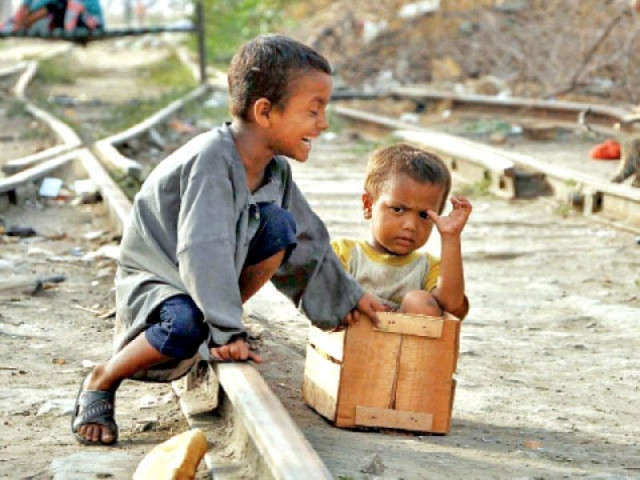Delivering child’s right: 51,000 children in Sindh get education with play
Right To Play shared its output of two-year long project with educationists in a seminar.

At a seminar on Wednesday, educationists stressed that learning through sport and play is vital for a child’s development. PHOTO: FILE
After affecting the lives of over 51,000 children in Sindh, Right To Play, a Canada-based development organisation, is now looking for sustaining the life of this project.
They shared the findings of the two-year long project to representatives from public and private sector at a seminar titled, ‘Sharing child-friendly approaches to learning through sport and play,’ at Mövenpick, formerly Sheraton, hotel on Wednesday.
In September 2011, the Right To Play in collaboration with United Nations Children’s Fund (Unicef) began implementing a life-skills development programme with child-friendly schools and communities in seven districts of Sindh. The programme was aimed at increasing awareness among teachers, parents and children of the value of play as a component of education.

Right to Play provincial programme coordinator Ratan Salem said the organisation is working with community volunteers, who serve as coaches in schools, while young children with strong leadership skills working as junior leaders took the programme a notch ahead in their respective schools and communities.
“It was challenging to break the age-old perception that play is extracurricular or a waste of time,” said Iqbal Ali Jatoi, the country manager for Right To Play.
In just two years, the organisation’s interventions in Sindh have expanded to over 300 child-friendly schools, catering to over 51,000 children through regular play-based learning sessions.
It has enhanced the capacities of over 200 local youth as coaches and groomed around 490 junior leaders from amongst the students. In addition, the organisation has trained around 380 public school teachers in creating an inclusive and friendly learning environment in schools.
Right To Play’s head of coach in Ghulamullah village in Thatta, Anam Arian, said she had to listen to teachers’ scathing remarks while she visited public schools to spread awareness about the programme. “The teachers said we were wasting our times on a futile matter with a lot of time on our hands,” recalled Arian. After putting efforts for around two years, she now sees her achievement in terms of a perceptible change not only within the schools, but in her community as well. “The teachers who used to make fun of us now tell everybody that the school experienced an unprecedented increase in enrolment in the last 25 years,” said Arain.
Unicef education specialist Shahla Rashiduddin said, “We need to prove the success of the programme through empirical evidence so that the government can be assured that it has worked.” Educationist Dr Ghazala Rahman appeared on the same page with Rashiduddin. “As soon as a project’s life is over, everything fizzles out, but we need sustainability for a well-rounded impact,” said Dr Rahman.
Deputy programme manager at education department’s reform support unit, Ghulam Nabi, was candid in accepting that the government has failed to change the general perception about the public education system. “Spending millions in distributing textbooks and giving out monthly stipends for female students are not making any impact,” said Nabi.
For Dr Jamaluddin Jalalani, provincial education additional secretary, sustainability was, however, a key consideration across all projects being run by NGOs. “Because of lack of coordination between the government and the NGOs, a number of projects have not worked,” said Jalalani. “They [the NGOs] do not bother to take the government on board to improve the viability and conservation of the material and immaterial developmental work they carry out with the help of international donors.”
Meanwhile, Ghulam Asghar Memon, additional director at the provincial bureau of curriculum, said, “United Nations recognises that play is the right of every child and should not be considered a luxury,” said Memom. “It should rather be used as a tool for promoting education and health for children”
Published in The Express Tribune, January 10th, 2014.



















COMMENTS
Comments are moderated and generally will be posted if they are on-topic and not abusive.
For more information, please see our Comments FAQ